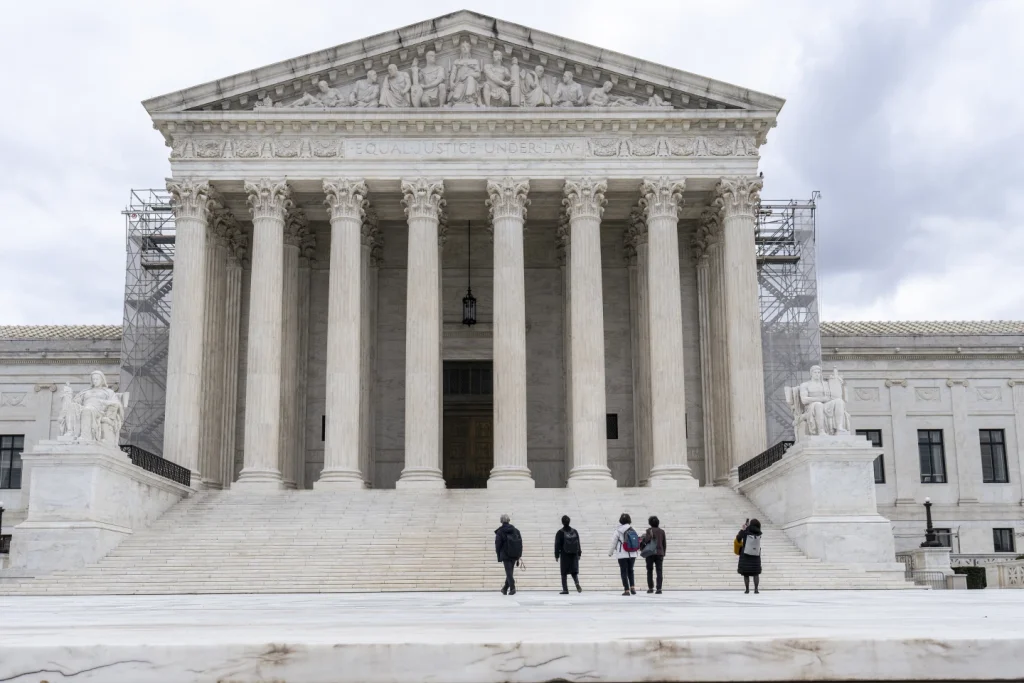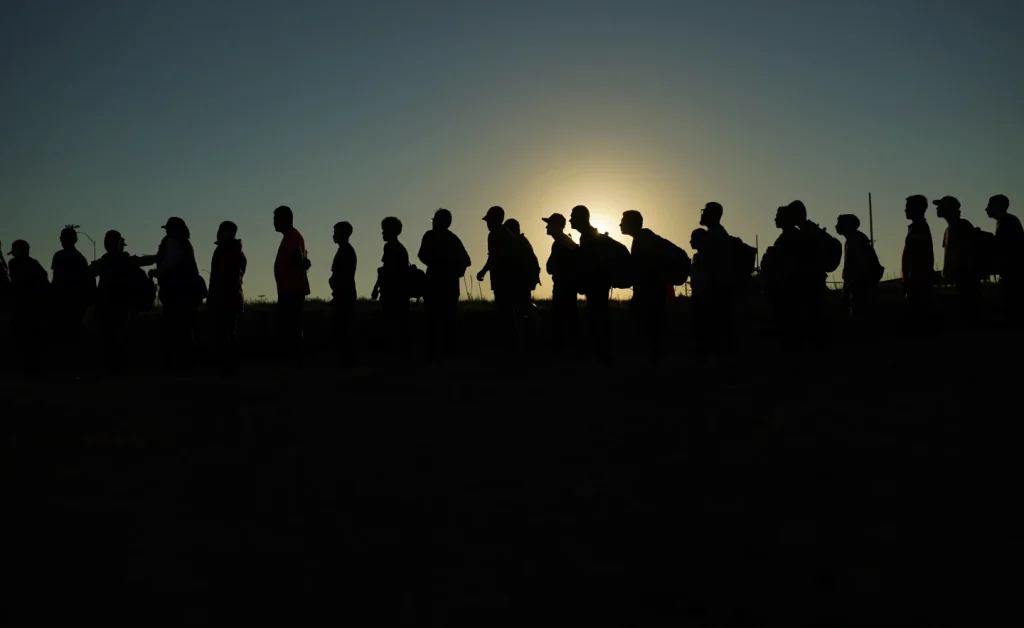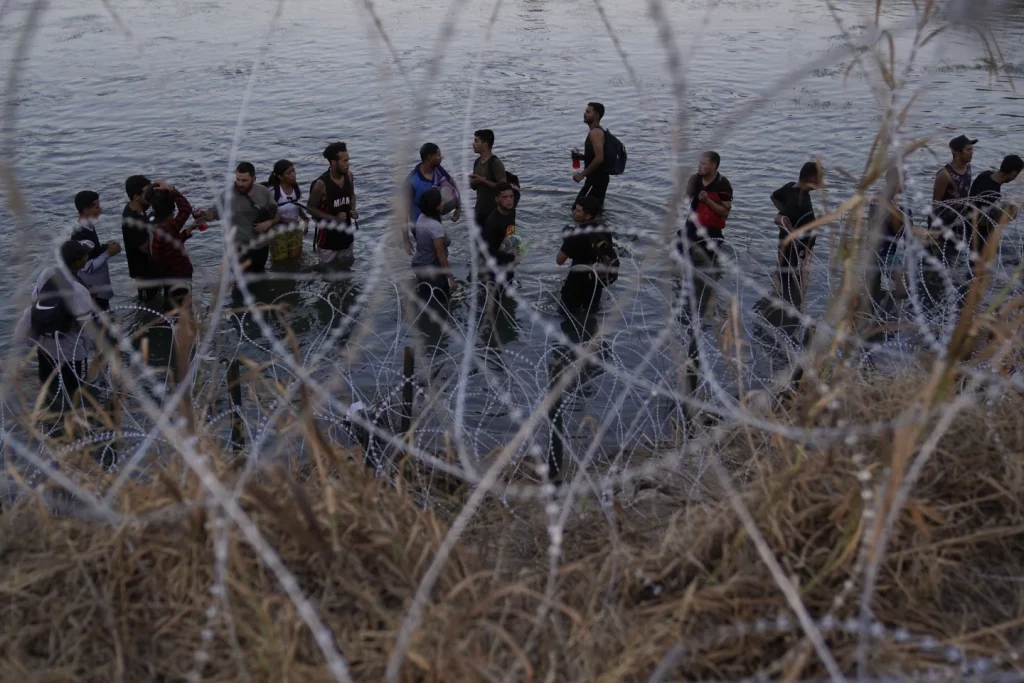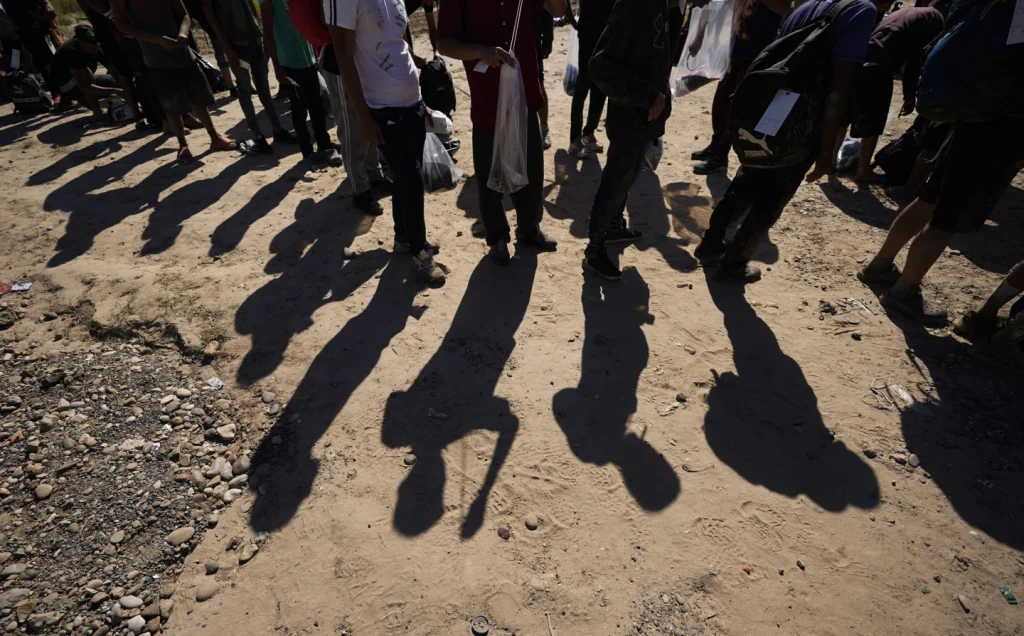In a recent development, a federal appeals court late Tuesday issued an order that once again prevents Texas from arresting migrants suspected of entering the U.S. illegally.
This decision came just hours after the Supreme Court allowed a strict new immigration law to take effect in the state.
The 5th U.S. Circuit Court of Appeals made this ruling, overturning a previous decision by a panel on the same court that had cleared the way for Texas to enforce the law by temporarily halting a lower judge’s injunction.
In a 2-1 order, the appeals court panel lifted the pause on enforcement ahead of scheduled arguments before the court on Wednesday.
Notably, Texas authorities had not yet announced any arrests made under the law at the time of the ruling.
Earlier on Tuesday, the Supreme Court, in a divided decision, had allowed Texas to begin enforcing a law that grants police expansive powers to arrest migrants suspected of crossing the border illegally while the legal battle over the measure continues.
The conservative majority order from the Supreme Court rejected an emergency application from the Biden administration, which argued that the law represents a clear violation of federal authority and would lead to chaos in immigration law enforcement.
Texas Governor Greg Abbott lauded the order that cleared the way for the law, which enables any police officer in Texas to arrest migrants for illegal entry and empowers judges to mandate their departure from the U.S.

It is important to note that the high court did not address the constitutionality of the law, instead deferring the matter to the appellate court, which issued the ruling late Tuesday.
The implications of the law remain unclear, particularly regarding the fate of migrants ordered to leave the country. The law stipulates that such individuals should be sent to ports of entry along the U.S.-Mexico border, even if they are not Mexican citizens.
However, Mexico’s government swiftly responded by stating that it would not, under any circumstances, accept the return of migrants to its territory from the state of Texas. Mexico is only obligated to accept deportations of individuals who are Mexican citizens.
The Department of Homeland Security announced that the federal government would continue its legal challenge against the law, citing concerns that it would further burden an already strained workforce.
The agency emphasized that it would not support any efforts to enforce the law, known as Senate Bill 4.
In conclusion, the ongoing legal battle surrounding the enforcement of the strict immigration law in Texas underscores the complex and contentious nature of immigration policy in the United States.
The conflicting perspectives of state and federal authorities, as well as the international implications of the law, highlight the challenges inherent in addressing immigration issues at the intersection of law, politics, and diplomacy.
The recent decision by the Supreme Court to allow a controversial Texas immigration law to go into effect has sparked intense debate and dissent among the justices.
In a departure from the norm of providing detailed opinions in emergency appeals, the majority’s decision drew sharp criticism from liberal justices Ketanji Brown Jackson, Elena Kagan, and Sonia Sotomayor.
Justice Sotomayor, in a scathing dissent joined by Justice Jackson, condemned the Court’s ruling as a green light for a law that she believes will disrupt the longstanding balance of power between the federal and state governments, leading to chaos.
Critics of the law argue that it represents one of the most significant state efforts to regulate immigration since a similar Arizona law was partially struck down by the Supreme Court over a decade ago. Concerns have been raised about potential civil rights violations and racial profiling resulting from the implementation of the Texas law.
The White House has strongly criticized the law, with press secretary Karine Jean-Pierre denouncing it as harmful and unconstitutional.

She expressed concerns about the burden it would place on law enforcement and the confusion it could create, urging congressional Republicans to address the issue through federal legislation on border security.
In defense of the law, Texas officials argue that they have the right to take action in response to what they perceive as an ongoing crisis at the southern border.
Sheriffs’ offices in Texas have been preparing for the enforcement of the law, which allows police in border counties to make arrests if they witness illegal crossings.
The law also permits enforcement in other parts of Texas if individuals are arrested for unrelated offenses and are found to have re-entered the country unlawfully.
Despite these provisions, some officials, such as Sheriff Eddie Guerra of Hidalgo County, express doubts about the law’s constitutionality and the challenges it poses for local law enforcement.
Justice Amy Coney Barrett, a conservative member of the Supreme Court, indicated that her vote in support of Texas was based on procedural considerations rather than agreement with the substance of the law.
She highlighted the technical aspects of the appeals process in her concurring opinion, suggesting that the Court’s review was focused on administrative procedures rather than the merits of the law itself.
The legal battle over the Texas immigration law reflects broader tensions between the state and the Biden administration regarding border security and immigration enforcement.

Republican governors have voiced support for Governor Abbott’s initiatives, criticizing the federal government’s perceived lack of action in enforcing existing immigration laws.
This case is reminiscent of past legal disputes, such as the Supreme Court’s 2012 ruling on an Arizona law targeting federal immigration violations.
In that instance, the Court struck down key provisions of the law, emphasizing the limitations of state intervention in immigration matters amid federal inaction. The ongoing controversy underscores the complex and contentious nature of immigration policy in the United States.

